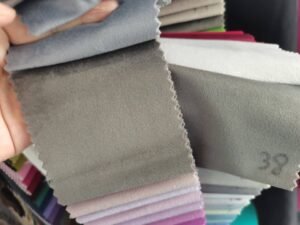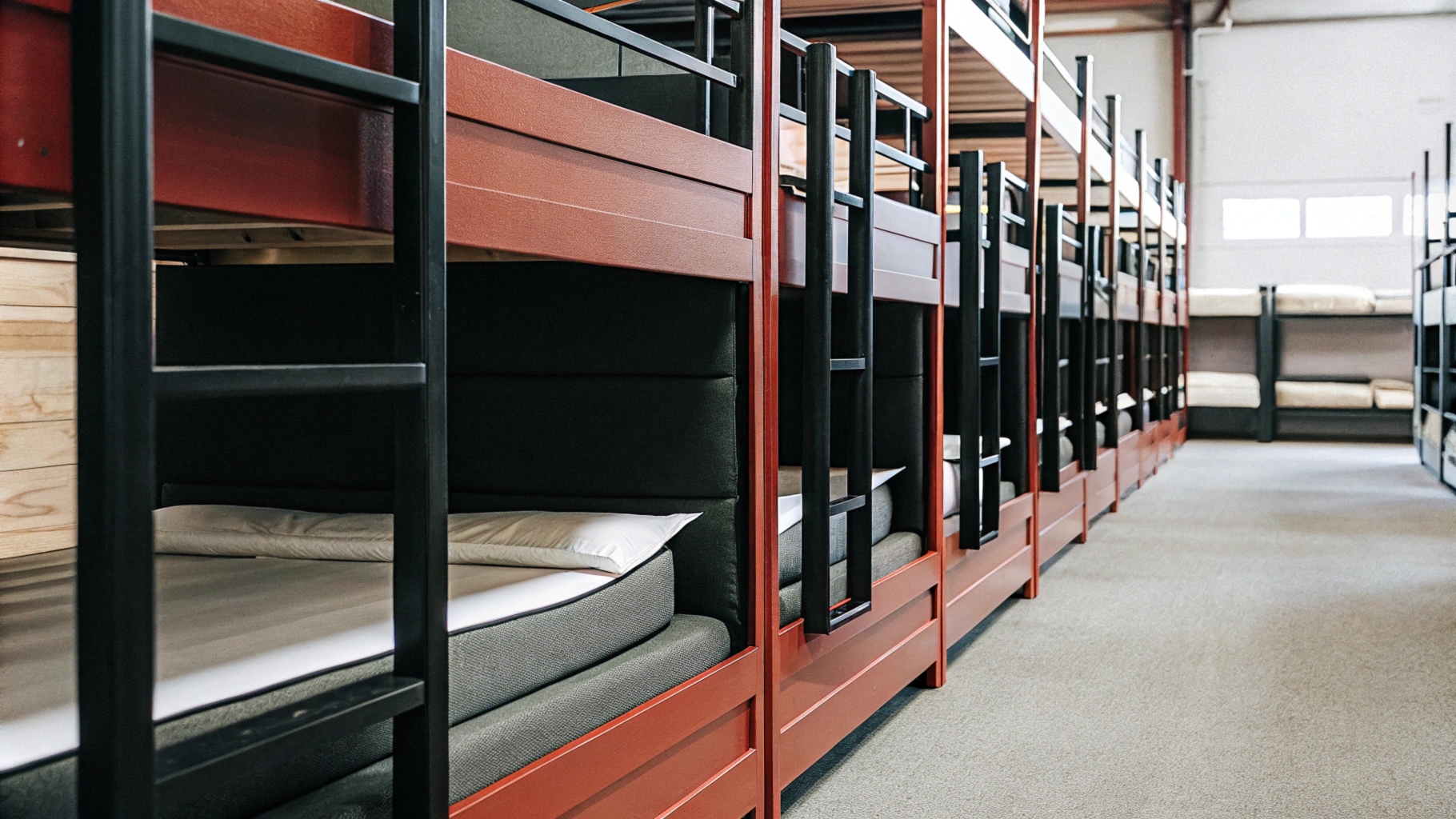
Are you struggling to find the right bunk beds that meet your customers’ needs? I know sourcing on Alibaba can be overwhelming, but choosing the best supplier saves time and boosts your business.
To find the best bunk beds on Alibaba, focus on supplier credibility, material quality, design variety, pricing, production capacity, and delivery timelines to meet your goals efficiently.
Choosing the right bunk beds can help you avoid unnecessary headaches. Let me share the key factors you should consider.
How to Choose the Right Bunk Bed?
Picking the wrong bunk bed leads to returns, complaints, and wasted costs. I’ve been there before, and trust me—getting it right matters.
The right bunk bed depends on safety features, material durability, weight capacity, space requirements, design, and ease of assembly to meet your business goals.
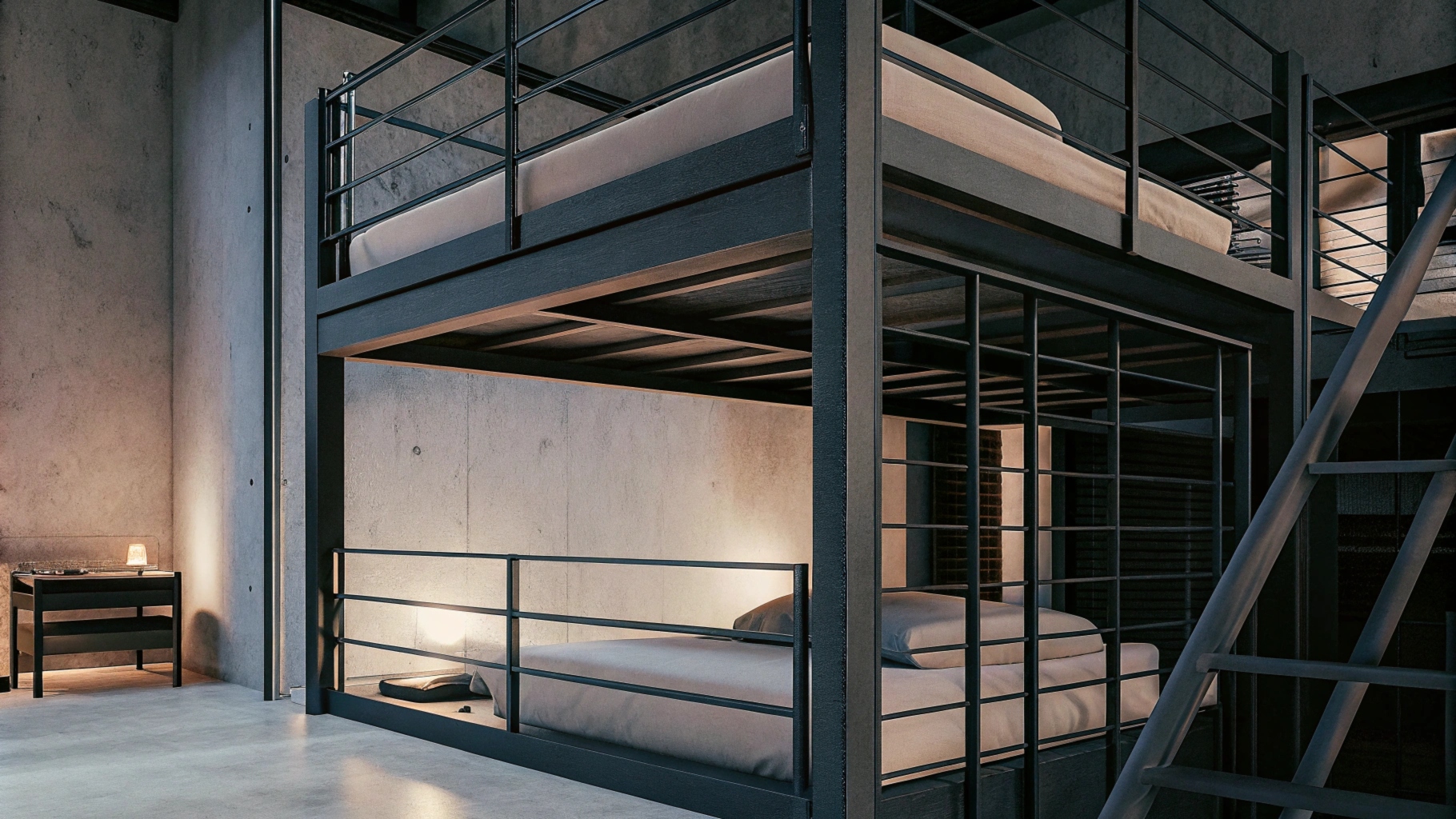
Focus on Safety First
Safety comes first, no questions asked. I always check for these features:
- Guardrails: The top bunk needs strong guardrails on all sides.
- Ladders: Ladders should be sturdy and easy to use.
- No Gaps: Gaps between the mattress and frame can be a hazard.
Match the Bunk Bed to Your Market
Think about your customers. Do they want bunk beds for tight spaces, shared kids’ rooms, or dormitories? I focus on designs like:
- Space-saving bunk beds for small apartments
- L-shaped bunk beds for versatile layouts
- Storage bunk beds for extra value
Ease of Assembly Saves Time
Your customers don’t want a nightmare assembly process. I always test samples for:
- Clear instructions
- Minimal tools required
- Welded frames for durability
A good bunk bed should take no more than 30–45 minutes to set up.
What Is the Bunk Bed Rule?
Neglecting bunk bed safety rules can cost you more than you think. I’ve seen poorly designed bunk beds fail, resulting in accidents and frustrated customers.
The bunk bed rule requires guardrails on the top bunk, proper mattress size, and secure ladders. Children under six should never sleep on the top bunk.
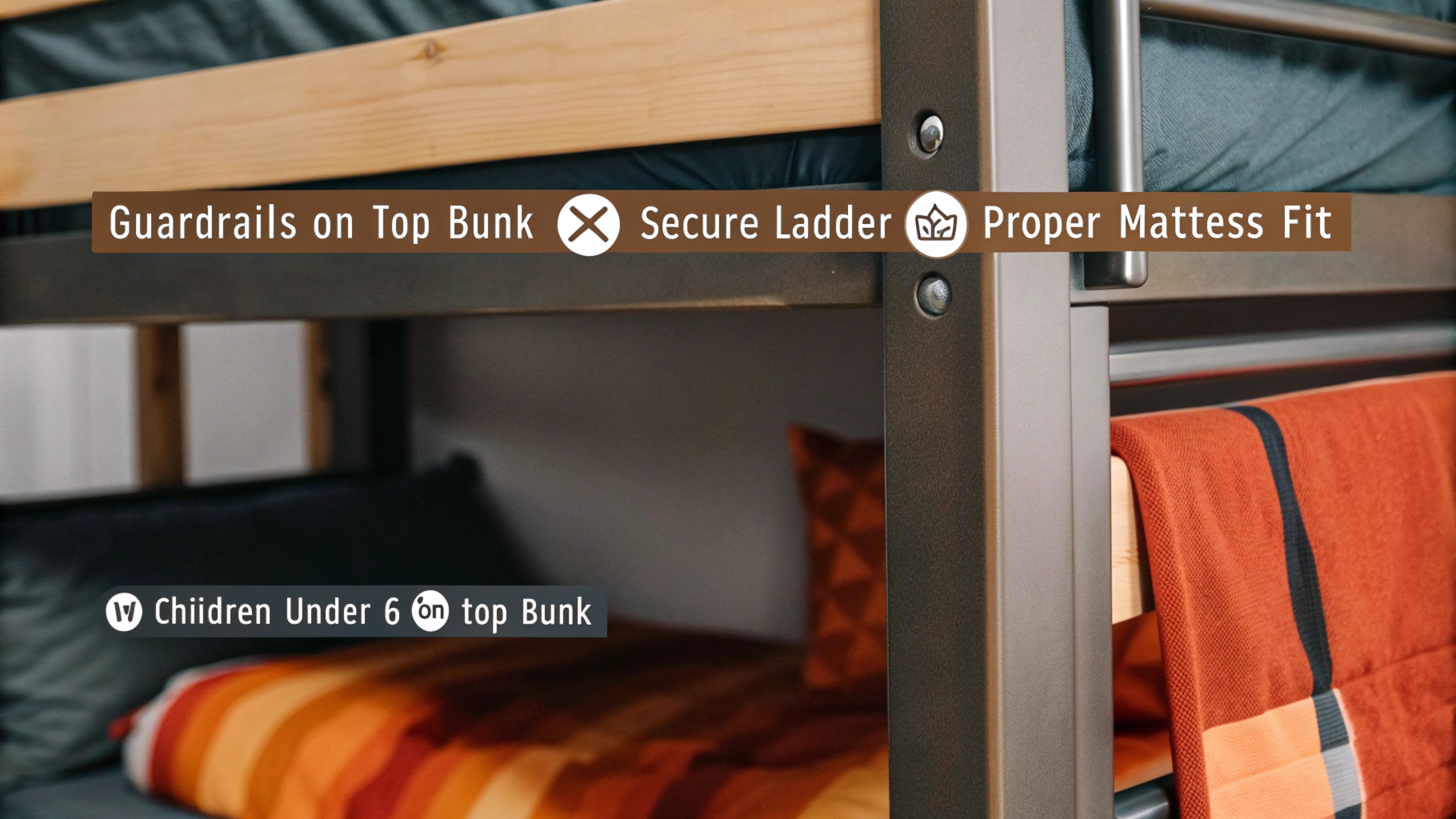
Key Safety Rules I Follow
- Guardrails: Guardrails must be at least [5 inches higher]1 than the mattress surface.
- Mattress Size: The mattress should [fit snugly]2 into the frame without leaving gaps.
- Weight Limits: [Overloading]3 the top bunk is a major risk.
- Age Restrictions: [No children under six]4 on the top bunk.
Why It Matters for Your Business
I always choose suppliers that meet safety certifications like:
It makes your bunk beds easier to sell and reduces customer complaints.
What Material Is Best for Bunk Beds?
Material matters more than you might think. The wrong choice can hurt your reputation when bunk beds break down too soon.
The best materials are solid wood for durability or metal for a lightweight, modern option. Choose based on your target market and product positioning.
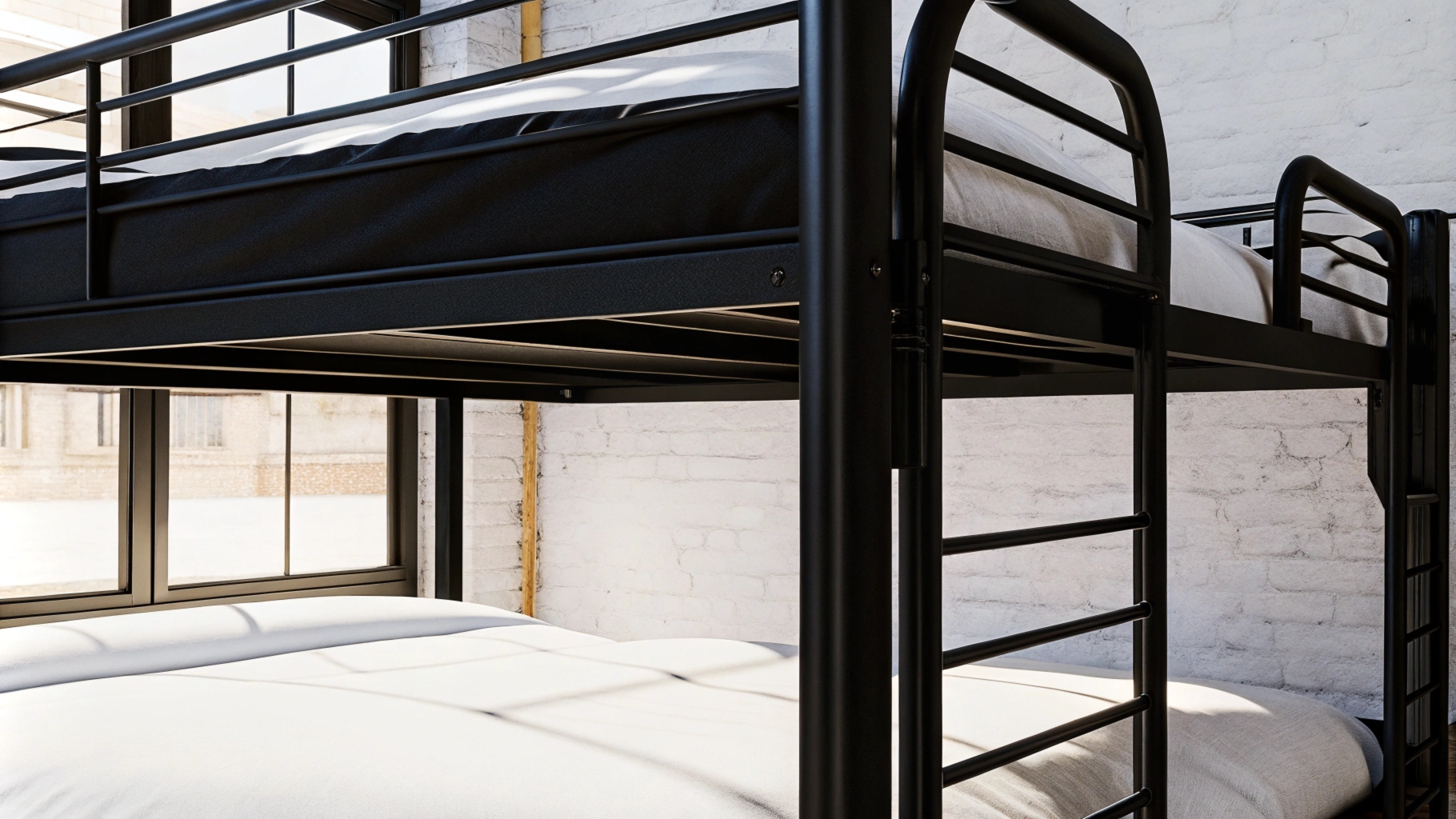
Solid Wood Bunk Beds: Premium and Durable
I recommend solid wood if you’re targeting customers who value durability and aesthetics.
Pros of Solid Wood:
- Long-lasting strength
- Premium, natural appearance
- Handles heavier weights
Cons of Solid Wood:
- Heavier to transport
- Higher cost
Metal Bunk Beds: Lightweight and Affordable
For cost-sensitive markets, metal bunk beds perform well. I often recommend these for dormitories, rental units, or budget-friendly buyers.
Pros of Metal:
- Lightweight and portable
- Affordable for large orders
- Sleek, modern designs
Cons of Metal:
- May lack the premium look of wood
- Can squeak over time
Deciding What Works for Your Market
Here’s a quick breakdown I use to decide:
| Factor | Solid Wood | Metal |
|---|---|---|
| Durability | Strong, long-lasting | Sturdy but lighter |
| Cost | Higher | Lower |
| Appearance | Premium, natural look | Sleek, modern style |
For high-end markets, wood wins. For budget-focused clients, I lean toward metal.
What Is the Typical Weight Limit for a Bunk Bed?
Weight limits are critical. Selling bunk beds without clear specs can lead to returns or worse—customer accidents.
The typical weight limit is 200–250 pounds for the top bunk and up to 400 pounds for the bottom bunk, depending on the material and construction.
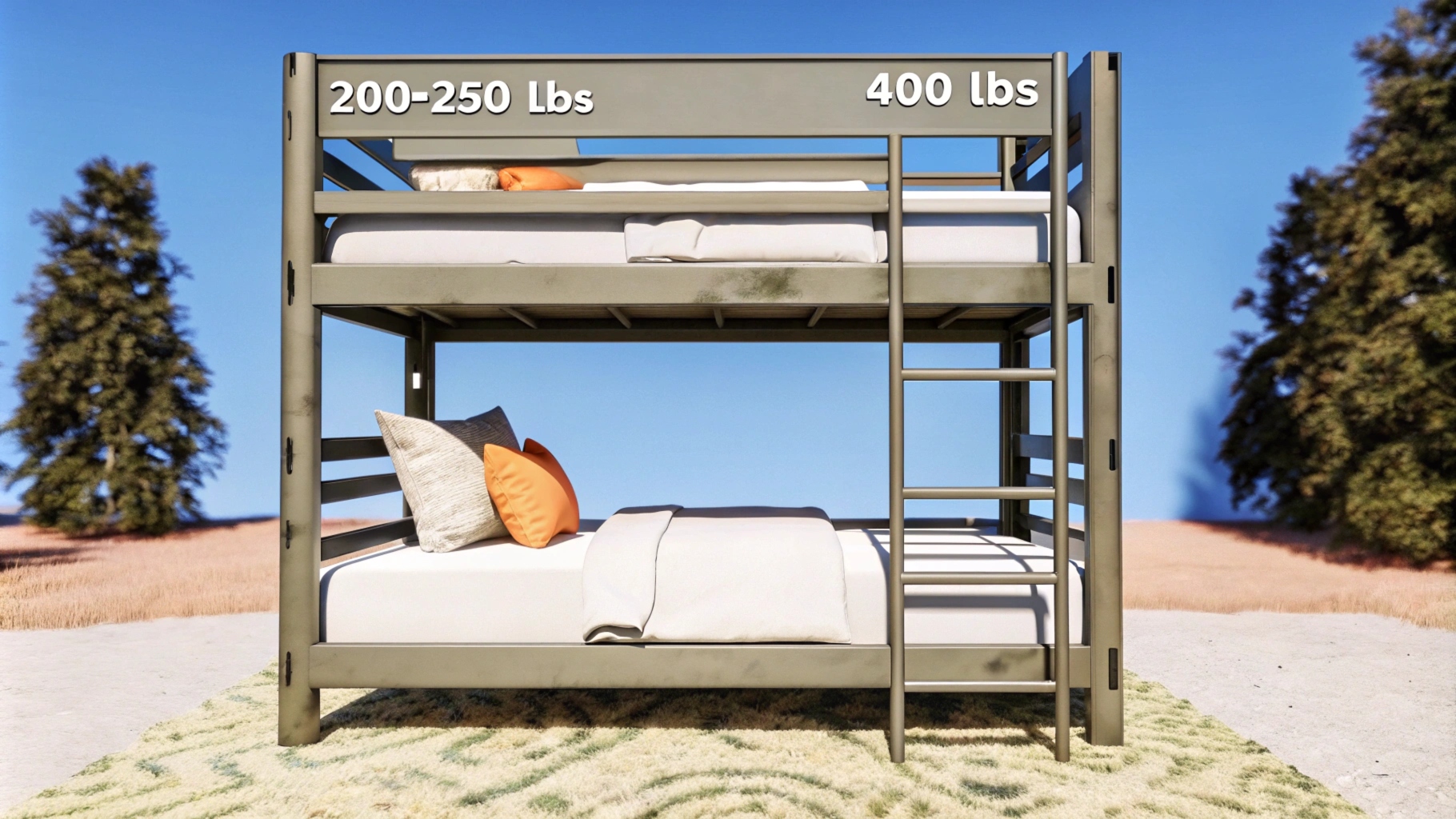
Why Weight Limits Matter
In my experience, weight limits determine durability. Customers need bunk beds that can handle real-life use.
Top vs. Bottom Bunk
The weight limit usually depends on the design and material:
| Bunk Level | Weight Capacity |
|---|---|
| Top Bunk | 200–250 pounds |
| Bottom Bunk | 300–400 pounds |
Testing for Reliability
I always ask suppliers for third-party testing reports. If a supplier can’t provide proof, I move on. A well-constructed bunk bed can handle:
- Heavy usage in dorms or hostels
- Growing kids in family homes
Choosing the Right Supplier
When sourcing on Alibaba, I focus on verified suppliers. Look for manufacturers that offer clear specs, weight tests, and guarantees.
Conclusion
Choosing the best bunk beds on Alibaba comes down to material, safety, weight limits, and supplier reliability. Get it right, and you’ll build trust while growing your business.
Footnotes
-
Guardrails prevent falls by ensuring there’s a safe barrier between the mattress and bed frame. Learn the proper guardrail safety guidelines. ↩
-
A snug-fitting mattress eliminates dangerous gaps that could cause entrapment or falls. Explore how to choose the right mattress size for bunk beds. ↩
-
Overloading the bunk bed beyond its weight capacity can compromise structural integrity and cause accidents. Read more about weight limits. ↩
-
Age restrictions are in place to reduce falls and injuries for younger children. Understand why bunk beds are recommended for children over six. ↩
-
ASTM certification ensures that products meet safety standards required for the U.S. market. Learn more about ASTM regulations and why they matter. ↩
-
EN certification is the safety standard required in Europe, ensuring compliance with strict safety and quality guidelines. Understand how EN standards benefit your business. ↩

